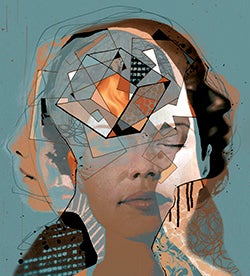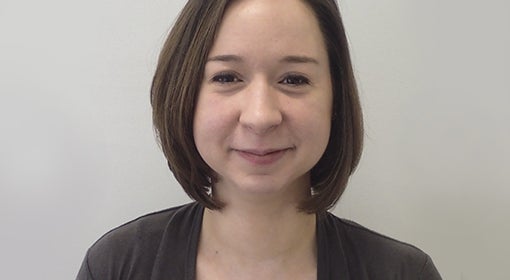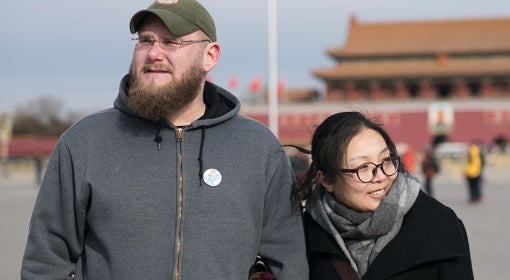
Standing barefoot in the back of the room, leaned up against a desk, a student in a black-and-white sundress scribbles notes on a legal pad. Her brow is furrowed as she flicks the pen between her fingers. A few desks away, a student in a David Bowie T-shirt rests his head on folded arms, his floppy brown hair spilling onto the table. Somewhere inbetween the two, wearing large, circular black glasses, another student speaks in quick bursts to those around her.
Although it doesn’t seem like it, the students are working in unison, engaged in an experiment. It is a thought experiment, which takes place predominantly in the mind, using imagination to investigate the nature of things from the likes of economics, history, mathematics, philosophy, sciences, and physics.
Right now, though, the students are focused on one thought experiment in particular: reason out how we know the earth is round.
But a thought experiment can be about anything, such as a cat in a box with a vial of poison—the basis of the famous Schrödinger’s cat thought experiment, which illustrates the oddities of quantum mechanics.
Thought experiments can take place anywhere. On a bed. On a bus. Or, in this case, on the eighth floor of the Cathedral of Learning, where 15 high-achieving undergraduates are gathered for the weeklong University of Pittsburgh Summer Program in Philosophy of Science for Underrepresented Groups.
The summer program was established by Edouard Machery, director of Pitt’s Center for Philosophy of Science, which is devoted to philosophy of science in all its forms. “The idea for the program is to show that Philosophy of Science can be a welcoming place for people from underrepresented groups,” says Machery, whose research focuses on the philosophical issues raised by the cognitive sciences. His hope is that the program helps lead to greater diversity within the field, which would deepen “the knowledge base” and bring added passion and perspective to the Department of Philosophy, Department of History and Philosophy of Science, and to all who study the disciplines.
The students come from a breadth of countries and get a feel for the wide range of topics covered in philosophy of science, which stretches from consciousness to the laws of nature.
This morning’s thought experiment is headed by Distinguished Professor of History and Philosophy of Science John Norton, who teaches a range of subjects including quantum physics and cosmology, and has published extensively on the detailed steps of Einstein’s discovery of general and special relativity. He sits in a rolling chair in the middle of the U-shaped desk arrangement, facilitating the assigned thought experiment to deduce the planet’s spherical shape.
Together, the students’ imaginations contribute to the conversation, and the professor hopes to ultimately witness his high achievers break down barriers by building a community that is inclusive—all while learning the fundamentals of philosophy and science and piquing their interest in the departments.
The students remain hard at work until noon, when it’s time for lunch. Fortunately, nobody had fallen off the edge of the earth.
This story appeared in the Spring 2019 edition of Pitt Magazine.




